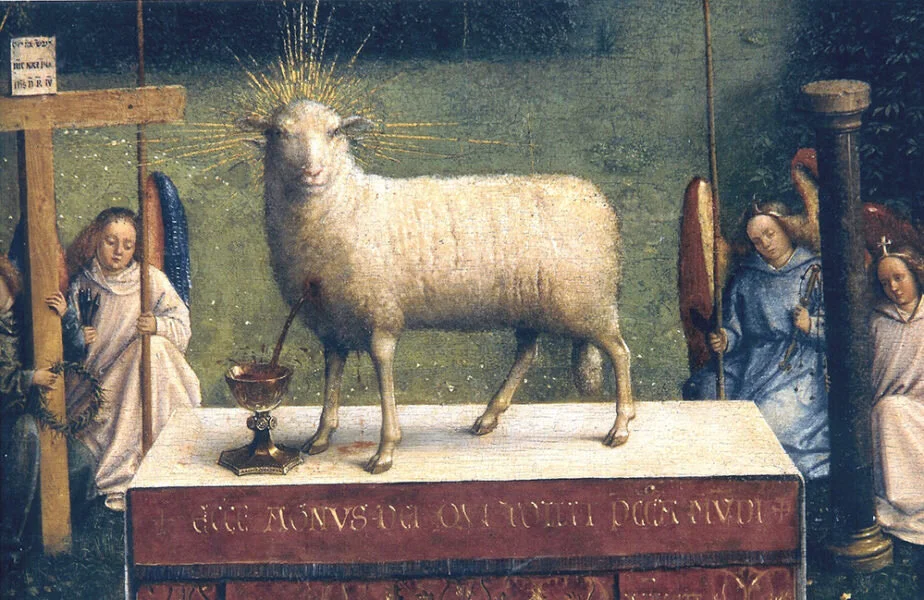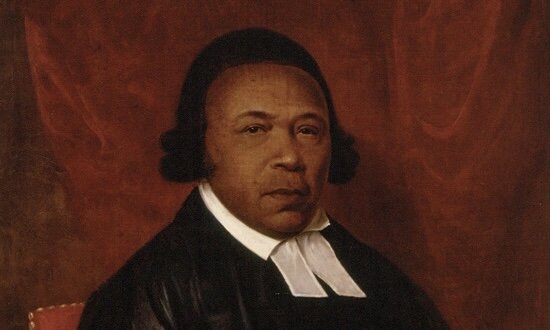One of the synthesis exercises for the ecclesiology seminar I took was to lay out a concept map of our understanding of the Church. It was a fun exercise that I’d highly recommend! Here’s what I came up with:
Bodies that Matter to God
Seminary Chapel Reflection
“Or do you not know that your body is a temple of the Holy Spirit within you, which you have from God, and that you are not your own? For you were bought with a price; therefore glorify God in your body.” — 1 Cor. 6:19-20
I don’t know if this will resonate with many of you, but this passage from Paul was a constant refrain in my childhood. The cheerleaders of Evangelical Protestant “purity culture” loved these verses as a way to discourage any activity they found even mildly objectionable.
A Full, Perfect & Sufficient Sacrifice
A Sermon for Good Friday
Sacrifice is a troubling concept for many of us. And understandably so. Most of us aren’t used to the blood and guts involved in preparing the meat we eat. So animal sacrifice seems jarringly foreign—even primitive. And when we look at the violence of human sacrifice, our discomfort turns into (justifiable) disgust. How could Abraham even consider killing his son? How could God ask that of him? And today on Good Friday—where is the sense in Jesus’ bloody, gruesome sacrifice? How is that “good”? What kind of God demands a human life in order to forgive sins?
If that’s what this sacrifice stuff is about, then we want no part in it!
And that makes sense. It really does.
What We Hand On
A Sermon for Maundy Thursday
“For I received from the Lord what I also passed on to you…” Every time I hear those words, a shiver runs down my spine. These four short verses that we just heard from Paul were what my childhood church used as a sort of eucharistic prayer on Communion Sundays. Paul’s account of the Last Supper—the first Eucharist—always evoked a sense of groundedness for me. I was fascinated as a kid with history and heritage and the idea of passing stories down through generations. And at some level, I knew intuitively that the Eucharist was part of a big story—bigger than any family history we rehearsed at home or national myth we learned in school. I wanted to share in this story more intimately; so as an 8 year old I looked forward with eager anticipation to my Easter baptism, when I would get to take Communion for the first time.
Fruit That Will Last
A Sermon for the Feast of St. Absalom Jones
On November 6, 1746, in a little town in Delaware, a remarkable baby boy was born and named Absalom. Born into slavery and separated from his family as a child, Absalom resolved early on not to let his masters control his fate. Even as a kid, Absalom saved his pennies to buy a Bible and a primer and learned to read. As an adult, he worked hard, saving money and fundraising, so he could free his wife from slavery. By the time he was 38, he’d managed to purchase his own freedom too.
A nose bleeding but not upturned
Cassian is at it again this morning, poking at the tender spots in my spiritual life, forcing me to reckon uncomfortably with sores I’d rather nurse alone. Really, he’s talking about something (almost) entirely different in Conferences 2.16, which is mostly occupied with questions of free will & human effort. But hearing this verse as the very last words of today’s chapter prodding something that was brought to the surface of my heart yesterday: spiritual pride.
Now my eye sees
Today is the feast of St. Thomas the Apostle, as observed by the Episcopal Church and sundry other Churches (December 21st was the date in most Western Calendars before the 1969 Roman Calendar). St. Thomas holds an obvious special place in my heart because I’m Malayali—our established folklore says that he traveled to the Malabar coast and established 7 churches there, which have persisted and proliferated into the St. Thomas Christian (Nasrani) community. So the story of St. Thomas was a well-rehearsed tale in my home growing up, even in spite of my parents’ aggressive Protestantism.
Joy stirred up
A Sermon for Advent 3 (Year B)
My Indian grandmother is the one who taught me to love the Psalms. Every morning Ammachi would spend an hour, sitting in her chair by the bay window, just reading the Bible. Her English was excellent, but she always read it aloud—in a soft voice, barely audible above the sound of the chirping birds. It’s her voice I hear in my head as I read the psalms, especially today’s.








